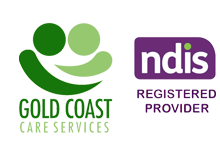Science is one of the most important disciplines in the world. We all rely on science to find new
technology and learn about the world we live in. The scientific community has some of the
smartest minds in the world within its ranks, yet barely any of them have a disability.
Unfortunately, despite all it is capable of doing, science can be restrictive to those who have a
disability, often locking them out of making contributions.
Consider for a moment that some of the most intelligent people in the world want to join the
ranks of the scientific community. However, it is simply their physical limitations which prevent
them from doing so. They have no disability which afflicts their mind, so their intelligence
remains unchanged. These are people who might discover amazing scientific breakthroughs or
redefine the way we look at the world. However, because they aren’t given access to a modern
laboratory or can’t handle delicate equipment, they are barred from making a contribution. We
believe that is a great shame, and one which hurts all of us.
So, how do we go about making the scientific world more accessible to people who have a
disability? What groundwork do we need to lay to make this happen? Well, we have a few
ideas, so let’s look at them:
- We should focus on designing lab equipment which is sensitive in function but
accessible in design. Simply put, precise controls which require fine motor control need
to be changed where possible. These types of designs are hindering disabled people. - Laboratories need to be designed to be accessible for people with mobility aids. All too
often, laboratories are cramped and inaccessible – designed for an able-bodied person
to weave between chairs and tables. This is not accessibility-friendly. - When considering research projects and new positions, scientific institutions and
universities need to make sure that they are actively working to provide opportunities for
disabled people. Many jobs are predicated on the idea that the person in question is
able-bodied. - The scientific community should strive to have more expert opinions and guidance from
disabled individuals to constantly improve and learn how they can do more to be
inclusive. After all, there is no better way to judge how inclusive an institution or
organisation is than to see the opinions of people with disabilities. Ultimately, getting more people into the world of science and being inclusive towards disabilities,
is an important step towards a more equal future. The scientific community is just one which
needs to do more to be inclusive and to help people who have disabilities to feel like they can
succeed within high-ranking scientific positions. Some of the finest scientific minds in the world may well have been restricted by a disability and been unable to contribute meaningfully towards society.
